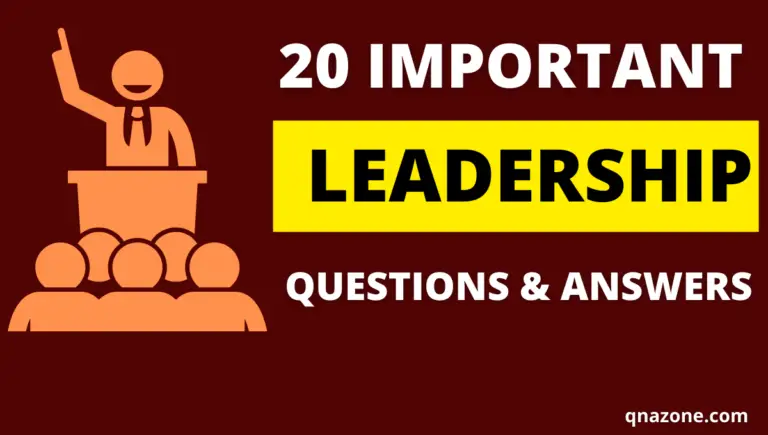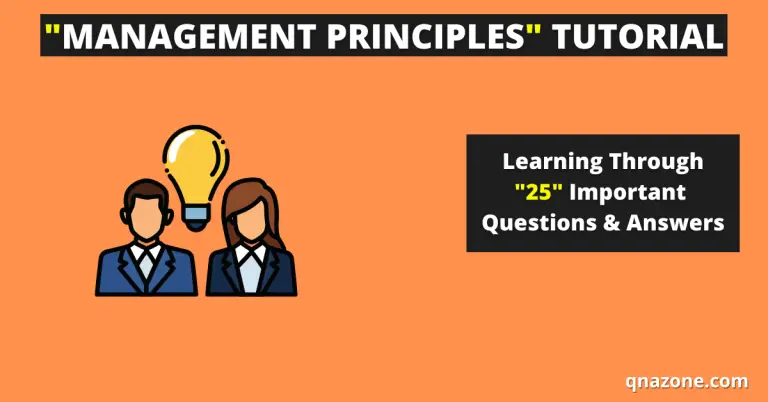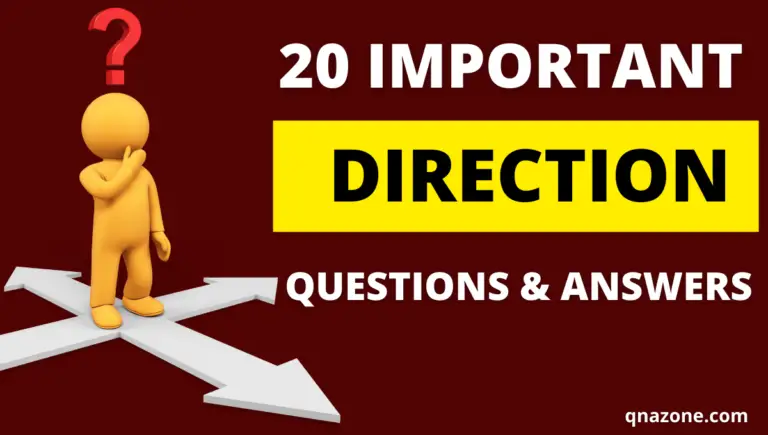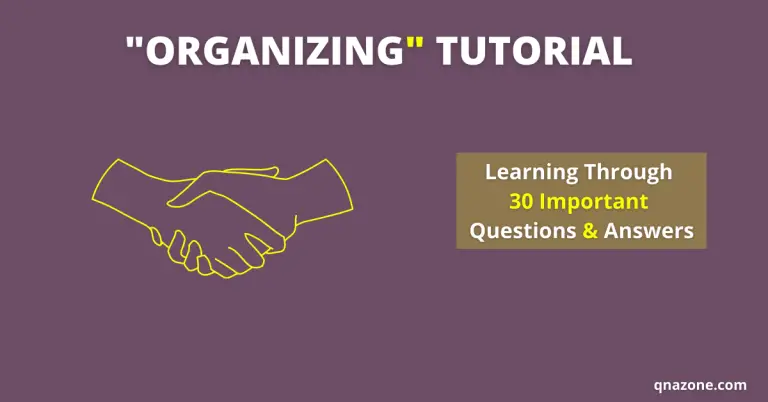25 Important Planning and Decision-Making Questions and Answers [With PDF]
The 3rd chapter of our Management learning course is “Planning and Decision-making”. In this article, we’ll learn the 25 most important planning and decision-making questions and their answers.
It will help you understand the important planning and decision-making terms and their explanations quickly.
You can read the two chapters of our management learning course here if you missed them.
- 25 Important Introduction to Management Questions and Answers [With PDF]
- 25 Important Management Principles Questions and Answers [With PDF]
By reading this post, you may quickly prepare for management courses and for any competitive tests such as school and college exams, vivas, job interviews, and so on.
So let get started…
Planning and Decision-Making Questions and Answers
The 25 important Planning and decision-making questions and answers are as follows:
Question 01: What is planning?
Answer: Planning is a reflection of future activities that have been predetermined. The primary objective of planning is to determine what will be done in the future.
Question 02: What are the Features of Planning?
Answer: The important features of planning are as follows:
- The first and most important task of management is planning.
- The planning is concerned with contemplation.
- Planning always entails forecasting the future.
- The plan is always developed with a specific purpose or goal in mind.
- When developing a strategy, you must consider what has happened in the past.
Question 03: What Characteristics Characterize a Good Plan?
Answer: The following are the characteristics that a plan must possess in order to be considered a good plan:
- Specified goal
- Grounded in reality
- Acceptability
- Appropriate direction
- Coordination and interconnection
- Flexibility
Question 04: What are the Six Steps of Planning?
Answer: The six steps of planning are as follows:
- Evaluating future
- Setting a goal
- Identifying the alternatives
- Evaluation of alternatives
- Choosing the most suitable alternatives
- Making preparations for derivative plans
Question 05: Which factors should be considered when developing a plan?
Answer: The following factors must be considered when developing a plan:
- Objects of organization
- Subordinates’ qualities and working conditions
- The previous plan’s effectiveness
- The organization’s current problems and future prospects
- Competitor’s condition
- Organizational financial and other capabilities
- A country’s economic and political situation.
Question 06: What is the Importance of Planning?
Answer: The importance of planning is as follows:
- The accomplishment of organizational goals
- Development and expansion of business
- Minimization of cost and wastage
- Effective utilization of resources
- Following the proper course of action
- Execution of other managerial responsibilities
Question 07: What are the Limitations of Planning?
Answer: The important limitations of planning are as follows:
- Problems in premising
- Time-consuming
- Costly
- Mental hazard
- Obstacle to initiative
- Problem in correction
- Inability to resolve external problems
Question 08: What are the Types of Plans?
Answer: The types of plans are as follows:
Based on Nature:
- Goals
- Standing plan
- Single-use plan
Based on Time Period:
- Short term Plan
- Mid-term plan
- Long-term plan
Based on Organization Structure:
- Strategic plan
- Functional plan
Question 09: What is Planning Premises?
Answer: The condition through which the adopted plan will be implemented is called the planning premises.
Question 10: What is a Single-Use Plan?
Answer: A plan that is made for a single purpose or one use is called a single-use plan.
Question 11: What is Standing Plan?
Answer: A plan that is used repeatedly in an organization until a new situation arises is called a standing plan.
Question 12: What is an Objective?
Answer: Objective is the intended goal around which activities are conducted.
Question 13: What is Mission?
Answer: Mission is the goal. The mission is the basic work that the organization will be conducted to perform.
Question 14: What is a Short-term Plan?
Answer: Plan generally accepted for a period of one year or less is called a short-term plan.
Question 15: What is a Mid-term Plan?
Answer: A plan adopted for a period of more than one year and a maximum of five years is called a mid-term plan.
Question 16: What is a Long-term Plan?
Answer: A plan adopted for any period of more than five years is called a long-term plan.
Question 17: What is Strategic Plan?
Answer: Strategic planning is the implementation of a long-term decision-making plan in order to achieve goals in a highly competitive market.
Question 18: What is a Functional Plan?
Answer: In terms of organizational strategic planning, the short-term implementation plan that is adopted at the middle and lower levels of the organization is referred to as a functional plan.
Question 19: What is a Master Plan?
Answer: An overall or master plan is a plan that combines the plans of all departments or regions of an organization.
Question 20: What is Decision Making?
Answer: Decision-making is the process of selecting the best option from a variety of alternatives to solve a problem or take action.
Question 21: What is the Process of Decision Making?
Answer: The process of decision making is as follows:
- Identifying and defining a plan
- Determination of priority
- Collection of data and information
- Generation of alternatives
- Choosing the best alternative
Question 22: What are the Associate Elements of Decision Making?
Answer: The associate elements of decision making are as follows:
- Judgment power and intuition
- Systematic thought
- Experience and skill
- Information
- Power and authority
- Organizational capacity
- Opportunity of participation
Question 23: Which Factors Should be considered in Decision Making?
Answer: The following factors should be considered in decision making:
- The Nature of the problem
- The Future condition
- Received information
- Decision goal
- Degree of cooperation
- Receivable time
Question 24: What are the Problems of taking Decisions and their Implementation?
Answer: The problems of taking decisions and their implementation are as follows:
- Inaccurate or incomplete information
- Incorrect identification of problems or alternatives
- Biasness
- Timidity
- The influence of emotion
- Inadequacy of input variables
- Lack of co-operation
Question 25: What are the Ways of Solving Problems in Taking Decisions and Its Implication?
Answer: The followings are the ways of solving problems in taking decisions and their implications:
- Gathering the necessary information
- Choosing appropriate alternatives
- Making timely decisions
- Consulting with concerned parties
- Informing decision-makers
- Providing necessary assistance.
I hope that by the end of this post, you have a good understanding of the “Planning and decision-making” chapter.
You will gain a better understanding of the “planning and decision-making” chapter if you read these 25 important planning and decision-making questions and answers on a regular basis.
You can also read:






